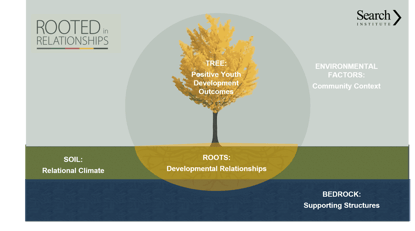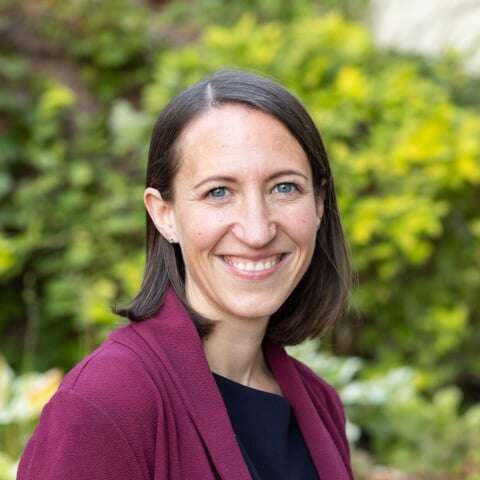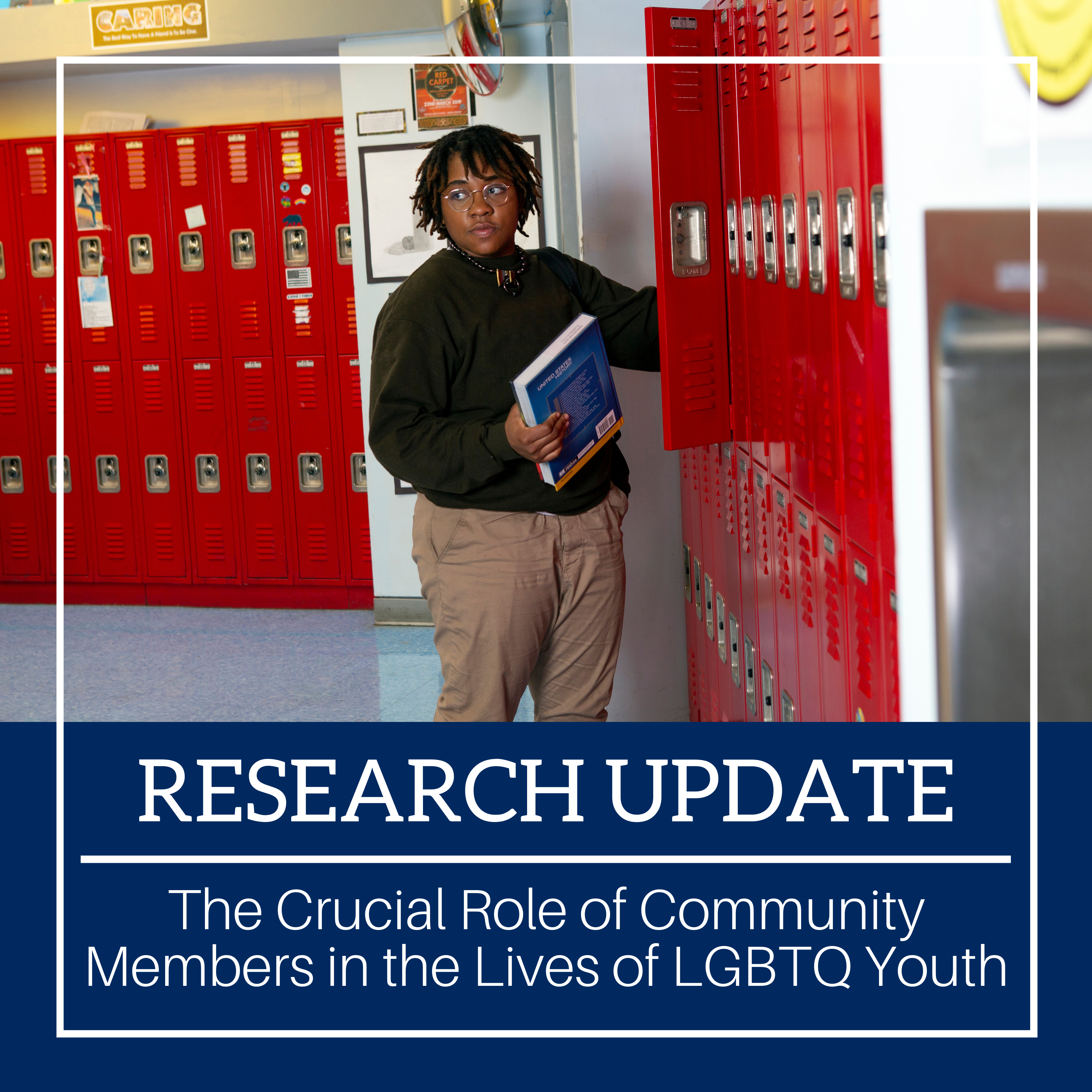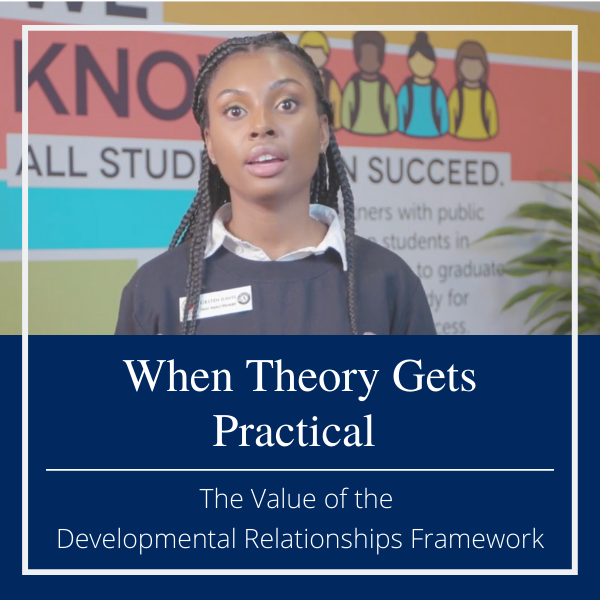Blog
How a Developmental Relationships Outlook Can Help Us Face Our Uncertain Future
It is difficult to predict what is going to happen in 2022. We continue to face the deadliest pandemic in U.S. history while also responding to the call for racial reckoning in our country and addressing the mental health needs of young people.
Even before the COVID‑19 pandemic began, we faced a documented increase of mental health challenges for young people. The pandemic has made it worse, so much so that the U.S. Surgeon General Dr. Vivek Murthy recently issued an advisory on a mental health crisis for youth.
In addition to the historical marginalization and systemic racism faced by communities of color for decades, the pandemic has also revealed the social and racial inequities in public health—with people of color at higher risk of getting sick and dying of COVID-19. These significant adversities bring tremendous challenges for parents, youth‑serving organizations, and schools in an unforeseeable future.
The Importance of Trauma‑Informed Practices
A trauma-informed lens is needed to acknowledge the detrimental and widespread impact of such adverse experiences on the social and emotional development of young people. Yet we also know that young people are not defined by their deficits or risks. They have sparks and strengths that—when supported—not only lead to resilience but promote thriving in the face of adversity. All young people have the potential to overcome incredible challenges when they gain equitable access to quality relationships and environments enriched with developmental assets.
Promoting resilience for young people is critical in the months ahead. This process begins with a clear definition of what it is and what it is not.
Resilience Through Relationships
Let’s start with what resilience is not.
Resilience is not a character strength that emerges from individual determination or effort. It can be easy to view resilience this way. After all, there are countless blockbuster movies and bestseller books that capture the hero’s journey to overcome insurmountable odds. We are often drawn in by such stories in ways that cause us to lose sight of the context that made resilience possible. This individualistic view of resilience minimizes the reality of the significant barriers faced by historically marginalized youth. It also obscures the importance of systemic change for promoting resilience.
However, the science of resilience over the past 40 years has led to a multisystemic view of resilience. For children and youth in particular, resilience emerges from multiple positive relationships and access to resources across multiple systems (for example, family, school, neighborhood, and community). Although young people’s own strengths contribute to resilient communities, it is impossible to be resilient independent of relationships and without access to basic necessities. Positive and supportive developmental relationships address the innate need of young people to feel valued, seen, and safe, especially in the midst of adversity and/or trauma. We cannot underestimate the importance of cultivating connections that nourish and strengthen young people in these most challenging times.
Creating Thriving Climates
We also know that close connections do more than promote resilience. They also help young people discover who they are, gain abilities to shape their own lives, and learn how to interact with and contribute to the world around them.
Developmental relationships provide the foundation of support and care for young people while also creating opportunities for young people to realize and act on their own gifts. Our research has identified five key elements of developmental relationships that promote positive youth development. These are:
- Express Care (Show me that I matter to you.)
- Provide Support (Help me complete tasks and accomplish goals.)
- Challenge Growth (Push me to get better.)
- Share Power (Treat me with respect and give me a say.)
- Expand Possibilities (Connect me with people and places that broaden my world.)
When young people experience these elements in their relational networks, they are more likely to have interactions that are responsive to their unique developmental needs, provide predictability and safety, and create opportunities to develop important competencies connected to a sense of purpose in the world.
We have also found that developmental relationships coupled with programs’ intentional efforts to expand social networks and provide resources build social capital and help young people to make progress toward their education and career goals.
Recognizing the Barriers to Relationship Building
However, developmental relationships do not happen in a vacuum. A commitment to equity requires acknowledging the social and racial barriers that undermine developmental relationships with and between young people. To address the complexity of the pandemic and the intersectionality between race and mental health, we need to identify and work to remove systemic barriers.
We recently asked almost 700 leaders, teachers, and direct service staff in youth-serving organizations and schools across Minnesota about the barriers they face in building relationships with young people. Here is what they said:
- 58% said that having different life experiences than the youth they work with makes it difficult to connect.
- 49% said staff members’ hesitation to share power with youth gets in the way.
- 43% said the lack of time specifically dedicated to building relationships with youth is a problem.
- 41% said relationship building is difficult because the external systems that they operate within are structurally racist.
- 41% said their school/program is not effective in helping youth navigate the challenges related to trauma.
- 19% said that organizational policies or structures make building relationships with youth difficult.
A survey of almost 15,000 youth is consistent with the first two bullet points above. We found that 83% of adults we surveyed reported being intentional about building developmental relationships with young people, whereas only 46% of young people reported experiencing strong developmental relationships with adults.
These results highlight the importance of culturally responsive and developmentally appropriate relational actions by adults so that young people experience developmental relationships.
These barriers also illustrate the importance of addressing the context in which developmental relationships happen. Changes to the structurally racist systems will require significant policy change and collaborative efforts to dismantle these systems. We must continue in this work together to do this while also making immediate changes to relational cultures for youth.
Rooted in Relationships
In 2017, Search Institute joined forces with five national and regional youth-serving organizations and networks. We spent three years together, learning what it takes to create a relationship-rich program and/or organization. 
Through a process of getting continuous iterative feedback from practitioners, conducting interviews with leaders and practitioners, and conducting an extensive literature review, we created the Rooted in Relationships model.
We have continued to strengthen the model through research findings and have found two critical components that shape the relational culture of organizations. These are Supporting Structures and Relational Climate.
-
Supporting Structures are organizational structures that support and sustain relationship building, including mission, values, shared vision, staff hiring, training and retention practices, and budget allocations.
-
Relational Climate is the felt experience of young people, staff, and families who enter the building and the social norms around relationships that make them intentional, inclusive, and equitable.
Relationships happen within content and program delivery, and in all the spaces that surround those activities. As such, an intentional focus on relationships is not a separate, add-on strategy. Rather, it must be integrated into what an organization already does. In this way, we can become architects of the contexts in which young people live.
Doing this requires a collective effort from leaders, practitioners, teachers, families, and communities committed to systemic change.
Together we can create relationship-rich spaces that promote resilience, focus on healing from trauma, and allow all young people to thrive.





